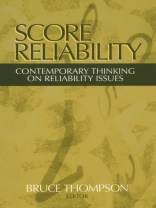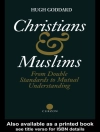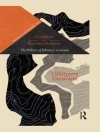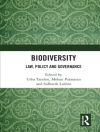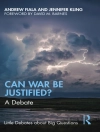‘This is a book that should be on the desk of anyone truly concerned with reliability. The whole question of conditional reliabilities is current and important; and, the question of reliability generalization is being opened out and moving away from Cronbach′s approach. The topic is an important one.’
–Richard L. Gorsuch, Director of Research in Graduate School of Psychology, Fuller Theological Seminary
Should a high school diploma be awarded to students based on their score on a final exit exam? Should businesses deny employment to people based on their score on a personality test? In a world of ‘high stakes’ testing, it has become more important than ever to make certain the scores on which we base our decisions are reliable. Aimed at helping researchers create and evaluate scores better, this reader presents the basic concepts of classical (or ‘true score’) and modern (‘generalizability’) test theory. Beginning with a review of reliability and validity issues in measurement, the book covers score reliability, reliability induction , and reliability generalization . Exercises with sample data are included at the end of each section so readers can demonstrate knowledge of the principles.
About the Author
Bruce Thompson is Professor and Distinguished Research Scholar, Department of Educational Psychology, Texas A&M University, and Adjunct Professor of Family and Community Medicine, Baylor College of Medicine (Houston). He is a Fellow of the American Psychological Association and an elected member of the Executive Council of the American Educational Research Association. Thompson is also the editor of the Sage Publications journal Educational and Psychological Measurement.
Table des matières
Preface
Part 1 Basic Concepts in Score Reliability
Ch 1 Understanding Reliability and Coefficient Alpha, Really alpha, Really – Bruce Thompson
Exercises – Bruce Thompson
Ch 2 Correcting Effect Sizes for Score Reliability – Frank Baugh
Ch 3 A Brief Introduction to Generalizability Theory – Bruce Thompson
Ch 4 Reliability Methods: A Note on the Frequency of Use of Various Types – Thomas P. Hogan, Amy Benjamin, and Kristen L. Brezinski
Ch 5 Confidence Intervals About Score Reliability Coefficients – Xitao Fan and Bruce Thompson
Exercises – Bruce Thompson
Part 2 The Nature of Reliability
Ch 6 Guidelines for Authors Reporting Score Reliability Estimates – Bruce Thompson
Ch 7 Reliability as Psychometrics versus Datametircs – Shlomo S. Sawilowsky
Ch 8 Psychometrics is Datametrics: The Test is Not Reliable – Bruce Thompson and Tammi Vacha-Haase
Ch 9 Reliability:Rejoinder to Thompson and Vacha-Haase – Shlomo S. Sawilowsky
Part 3 Reliability Induction and Reporting Practices
Ch 10 Sample Compositions and Variabilities in Published Studies versus Those in Test Manuals: Validity of Score Reliability Inductions – Tammi Vacha-Haase, Lori R. Kogan, and Bruce Thompson
Ch 11 How Well Do Researchers Report Their Measures?: An Evaluation of Measurement in Published Educational Research – Dale Whittington
Ch 12 The Degree of Congruence Between Test Standards and Test Documentation Within Journal Publications – Audrey L. Qualls and Angela D. Moss
Exercises – Bruce Thompson
Ch 13 Reliability Generalization: Exploring Variance in Measurement Error Affecting Score Reliability Across Studies – Tammi Vacha-Haase
Ch 14 Assesing the Reliability of Beck Depression Inventory Scores: Reliability Generalization Across Studies – Ping Yin and Xitao Fan
Ch 15 Measurement Error in ‘Big Five Factors’ Personality Assessment: Reliability Generalization Across Studies and Measures – Chockalingam Viswesvaran and Deniz S. Ones
Ch 16 Reliability Generalization of the NEO Personality Scales – John C. Caruso
Exercises – Bruce Thompson
Index
About the Author
A propos de l’auteur
Bruce Thompson is (a) a former member of the Council of the American Educational Research
Association (AERA), (b) a former nominee for AERA President, and (c) a former editor of AERJ:TLHD
(as well as 3 other journals, including EPM for 9 years). Bruce is especially known for (a) his work on
effect sizes, and (b) his contributions to creating the Lib QUAL+(R) protocol, completed in ~20
language variations by more than 1, 200, 000 academic research library users at more than
1, 100 institutions from around the world.
